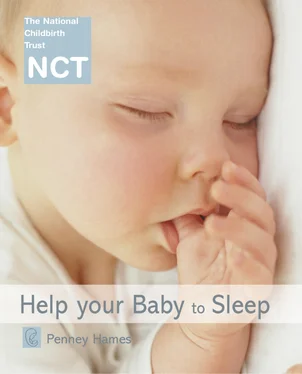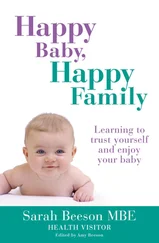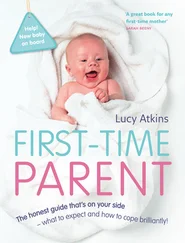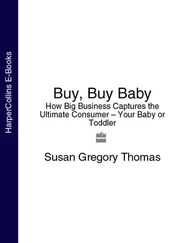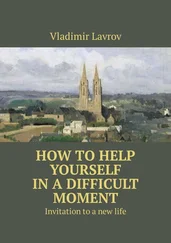• 20% of all sleep for adults
• older children and adults may dream
• occurs mostly in the later part of the night for adults
• learning is organized and stored
• irregular heartbeat and breathing in tiny babies
• inability to regulate temperature in tiny babies
• adults woken from this sleep may be disorientated
• more peaceful sleep
• 50% of all sleep at birth
• 80% of all sleep for adults
• no dreaming
• slow and regular heartbeat and breathing
• harder to wake from
• occurs mostly in the early part of the night for adults
• the immune system is boosted
• physical growth occurs
If you watch your child sleeping, you may notice that there are times when, eyes closed, he seems to be watching some particularly frenetic cartoon. Beneath his eyelids his eyes may flick from side to side and he may frown or smile and wiggle his fingers and toes. If your baby could watch you he’d see the same thing happening from time to time, though not so often. This is REM sleep, which stands for Rapid Eye Movement. This sleep state is also called active sleep. Adults and older children dream during REM sleep but it’s difficult getting a straight answer out of a baby, so there is no way of knowing whether babies do or not.
New-born babies spend about half their sleep time in REM sleep, and babies born before 30 weeks’ gestation initially spend a massive 90% of their sleep time in REM sleep; whereas for you and I, REM sleep only accounts for 20% of our sleep. The point about this is that most of the arousals your baby makes from sleep are from REM sleep. Which explains why premature babies wake more often than term babies and all babies wake more often than adults. However, don’t lose heart if your baby was born prematurely because premature babies are often better than term babies at soothing themselves back to sleep.
As they get older, babies have less REM sleep and therefore wake less often.
When he’s not in REM sleep your baby will, perhaps obviously, be in non-REM sleep or NREM sleep. This sleep state is also called deep sleep or quiet sleep. NREM sleep can be divided into four stages. Stages 1 and 2 are lighter, and stages 3 and 4 deeper and harder to wake from. You are more likely to wake up during stage 2 sleep than in any other part of NREM sleep. In NREM sleep things are more peaceful – no eye movements, with slower, more regular heartbeat and breathing. There is a theory that NREM sleep is the time when bodily processes are restored, when the immune system gets boosted and physical growth can occur.
• Just as active (REM) sleep is followed by quiet (NREM) sleep, so we have active and drowsy periods during the day as well.
• Look out for signs that your baby is tired and put him down to sleep then – it will be easier for him to fall asleep at this time.
• Start to get him ready for sleep when he is still in an active phase so that he can enjoy his bath and be dried and dressed just in time to feel drowsy.
• If you miss one drowsy period you may have to wait an hour or so for another, as the whole cycle takes about this long to complete.
NREM and REM sleep alternate through the night in both adults and babies. Babies cycle between the different types of sleep faster than adults. At birth it takes your baby about 50–60 minutes to complete a cycle, whereas it takes you about 90–100 minutes. The reason that this matters is that as you come out of REM sleep, ready to drop back down into NREM sleep, you arouse briefly. Your baby does the same. These brief arousals may or may not become complete awakenings depending on what you or your baby make of being awake alone.
Naturally, as your baby moves through the REM/NREM sleep cycle once every 50–60 minutes there’s a chance that he could wake you every 50–60 minutes. What’s more, these arousals happen with greater frequency towards dawn (Carskadon and Dement, 1989), just when you are having most of your REM sleep, the sort that helps you cope mentally with the day.
• Pessimistic?
• Lacking in energy?
• Upset over trivialities?
• Can’t see the wood for the trees?
Maybe you’re not getting enough REM sleep. When you have a baby you may need more REM sleep than usual to help your brain ‘organize’ your thoughts and feelings, and file away yesterday’s business.
People who are deprived of REM sleep for a long time become depressed and disorganized. They are unable to focus on what is important because they haven’t been able to deal with the debris of the previous day before they start the next. Try to arrange things so that you can get a block of REM sleep at least every other night – you’ll feel more energetic, optimistic and self-confident the next day. Try the following:
• Go to bed earlier than usual, so that you get to your REM sleep before your baby gets to you.
• Ask your partner to be responsible for the early morning shift from 4am onwards – at least once in a while.
• If you’re breastfeeding ask your partner to listen out for the baby and to bring him to you in the early hours.
Researchers have found that when adults are woken while in light sleep it makes little or no difference to their day; when woken from deep sleep they tend to be a little tired; but when woken from dream sleep they find it extremely difficult to cope with their tasks the next day (Ferber, 1985, and Rotenberg, 1992).
Babies cope with frequent night-time wakings better than their parents because they set the pace.
‘If you have a baby who sleeps, you are considered lucky, but if you have a baby who doesn’t, you are considered to be doing something wrong.’
Harriet and Will, parents of Emily, ten-and-a-half months
‘You can think that you’ve cracked it and that you know yourself and then you find that you haven’t and you don’t.’
Buff, mother of four, who has an ‘appalling’ sleeper after two ‘good’ ones
It doesn’t matter which of the suggestions you take away from this book. The important element in whatever you choose is that you have chosen it and made it fit with your way of parenting. Solutions need to fit relationships. There are no universal panaceas.
What matters to your baby is that you have confidence in yourself and in him. But in the beginning, and especially with the first baby, many parents find it hard to decide how they want things to be, and what will work for their baby. Sometimes it can be hard just finding out who you are, now that you’re a parent. Be patient with yourself – it will come. Confidence emerges when you know your baby and yourself well and are able to be loving and predictable. Most new parents find that when they relax and just do what comes naturally they become predictable. Loving, predictable and relaxed – it’s a confident combination.
Some people know how they want to handle their baby’s sleep from the beginning. Melissa, mother of Jessie, read a book and was convinced:
‘About three weeks before Jessie was born I read a book called The Continuum Concept which convinced me that the best way to sleep was together. It’s been no problem at all since she was born. Sometimes Jessie’s a bit restless and John has to lie on his front to protect his sensitive parts, but putting her in another room just seemed such hard work. After a couple of weeks she never really woke at night, she just goes around looking for milk. She sleeps through to eight or nine and sleeps really deeply. We have a 5ft 3in bed which is a great family bed. We built a big sleeping platform with rails at one side and the wall at the other. Possibly we are more relaxed because we don’t have to think “Shall we let her cry?” I think our relationship (John’s and mine) was improved because we both slept well.’
Читать дальше
